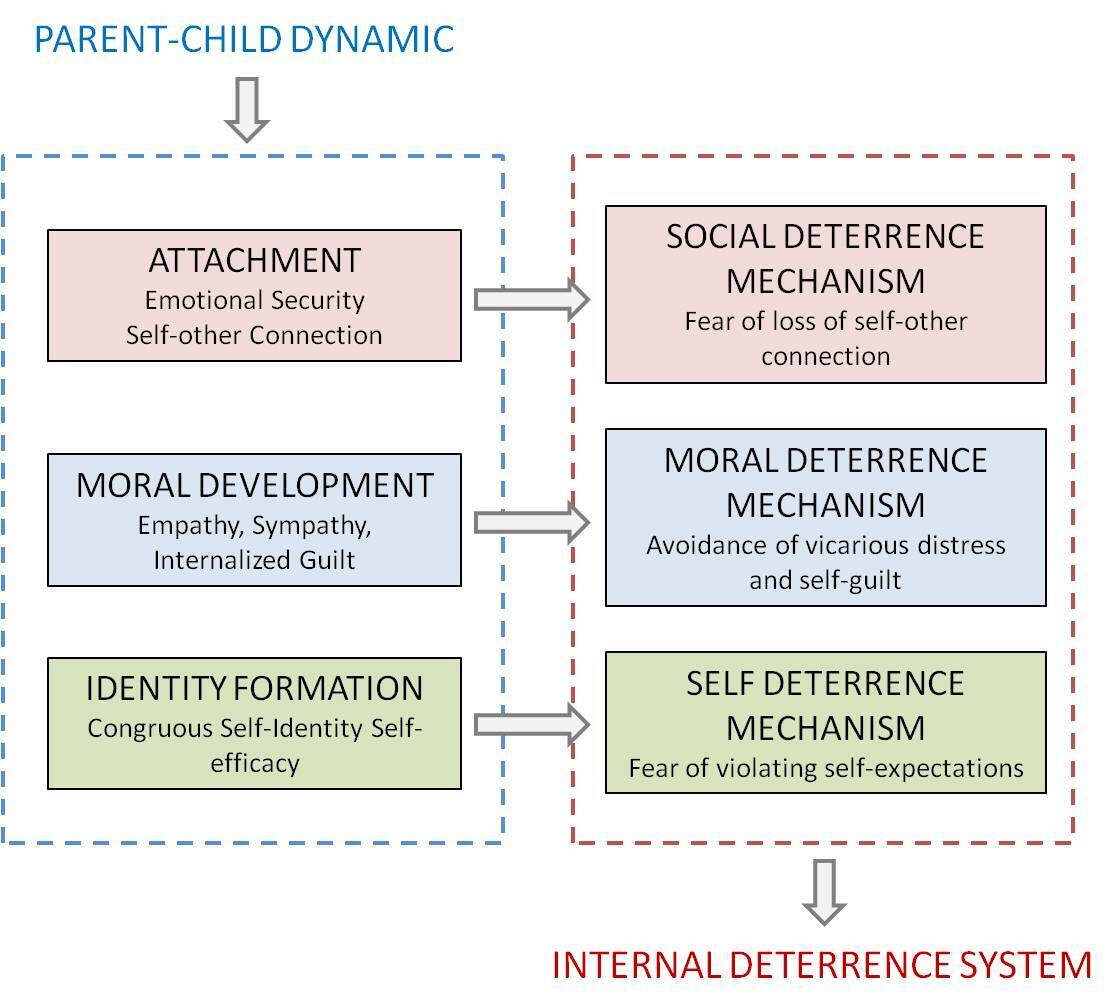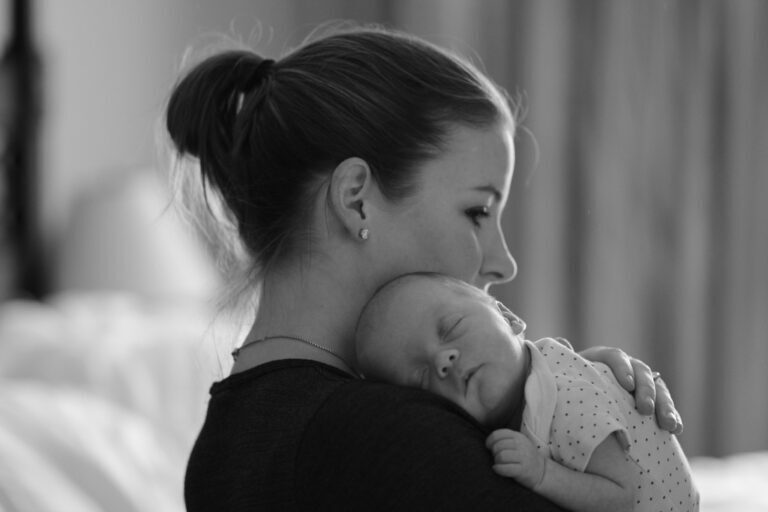How Uninvolved Parenting Affects a Child’s Emotional Development
Originally posted on 17/07/2023 @ 14:40
Introduction
Definition of uninvolved parenting
Uninvolved parenting, also known as neglectful parenting, refers to a parenting style where parents are emotionally detached and unresponsive to their child’s needs. In this type of parenting, parents may provide basic physical care for their child, such as food and shelter, but they are largely absent in their child’s life. They may not be involved in their child’s education, social activities, or emotional well-being. This lack of involvement can have detrimental effects on a child’s emotional development, as they may feel neglected, unsupported, and unimportant. Without the necessary emotional support and guidance from their parents, children raised in uninvolved parenting environments may struggle with forming healthy relationships, managing their emotions, and developing a strong sense of self-esteem.
Importance of emotional development in children
Emotional development plays a crucial role in shaping a child’s overall well-being and future success. It is during childhood that children learn to identify, understand, and manage their emotions. The importance of emotional development in children cannot be overstated as it impacts their social interactions, relationships, and overall mental health. A child who has a strong foundation in emotional development is more likely to have higher self-esteem, better communication skills, and the ability to cope with stress and adversity. Additionally, emotional development lays the groundwork for empathy and compassion, enabling children to develop healthy and meaningful relationships with others. Therefore, it is essential for parents and caregivers to prioritize and support their child’s emotional development from an early age.
Overview of the article
The article titled ‘How Uninvolved Parenting Affects a Child’s Emotional Development’ provides a comprehensive overview of the impact of uninvolved parenting on a child’s emotional development. It delves into the various ways in which neglectful or disengaged parenting can adversely affect a child’s emotional well-being, including the development of attachment issues, low self-esteem, and difficulties in forming healthy relationships. The article also highlights the long-term consequences of uninvolved parenting, emphasizing the importance of parental involvement and nurturing in promoting a child’s emotional growth and resilience. By shedding light on this important topic, the article serves as a valuable resource for parents, educators, and professionals working with children, providing insights and guidance on how to foster positive emotional development in children.
Effects of Uninvolved Parenting on Emotional Development
Lack of emotional support
Lack of emotional support can have profound effects on a child’s emotional development. When parents are uninvolved and fail to provide the necessary emotional support, children may struggle to develop a secure attachment and a strong sense of self-worth. Without a consistent source of emotional guidance and validation, children may feel neglected and unimportant, leading to feelings of loneliness, low self-esteem, and difficulty forming healthy relationships. Furthermore, the lack of emotional support can hinder a child’s ability to regulate their emotions and cope with stress, as they may not have learned effective coping mechanisms from their parents. Ultimately, the absence of emotional support can have long-lasting consequences on a child’s overall well-being and future emotional health.
Difficulty in forming secure attachments
Difficulty in forming secure attachments is one of the significant consequences of uninvolved parenting on a child’s emotional development. When parents are emotionally distant and neglectful, children may struggle to form healthy and secure attachments with their caregivers. This lack of emotional connection can result in feelings of insecurity, low self-esteem, and difficulty in trusting others. Without a secure attachment, children may have trouble developing social skills, regulating their emotions, and forming meaningful relationships later in life. It is crucial for parents to be actively involved in their child’s life and provide the emotional support and nurturing needed for healthy attachment formation.
Higher risk of emotional and behavioral problems
Children who experience uninvolved parenting are at a higher risk of developing emotional and behavioral problems. When parents are uninvolved, they fail to provide the necessary emotional support and guidance that children need to navigate through life. This lack of involvement can lead to feelings of neglect and abandonment, which can have a profound impact on a child’s emotional well-being. Without the presence of a caring and involved parent, children may struggle with regulating their emotions, forming healthy relationships, and coping with stress. Additionally, they may exhibit behavioral problems such as aggression, disobedience, and difficulty in school. It is crucial for parents to be actively involved in their child’s life to promote healthy emotional development and ensure their overall well-being.
Impact on Cognitive Development
Limited opportunities for cognitive stimulation
Limited opportunities for cognitive stimulation can have a significant impact on a child’s emotional development. When parents are uninvolved and fail to provide a stimulating environment, children may not be exposed to new ideas, experiences, and challenges. This lack of cognitive stimulation can hinder the development of important cognitive skills, such as problem-solving, critical thinking, and creativity. Additionally, without sufficient cognitive stimulation, children may struggle with emotional regulation, as they may not have the necessary tools to understand and express their emotions effectively. It is crucial for parents to recognize the importance of providing their children with a variety of stimulating activities and experiences to promote healthy emotional development.
Lower academic achievement
Lower academic achievement is one of the significant consequences of uninvolved parenting on a child’s emotional development. When parents are emotionally distant and fail to provide the necessary support and guidance, children may struggle academically. Without parental involvement, children may lack motivation, discipline, and the necessary resources to succeed in their studies. They may also experience a lack of self-esteem and confidence, which can further hinder their academic performance. As a result, these children may have lower grades, decreased interest in learning, and a higher likelihood of dropping out of school. It is crucial for parents to actively engage in their child’s education to ensure they have the best chance for academic success and overall emotional well-being.
Impaired problem-solving skills
Impaired problem-solving skills are one of the significant consequences of uninvolved parenting on a child’s emotional development. When parents are uninvolved and fail to provide guidance and support, children may struggle with developing effective problem-solving strategies. They may lack the necessary skills to identify and evaluate potential solutions, leading to difficulties in resolving conflicts and making decisions. This can have long-term effects on their ability to cope with challenges and adapt to new situations. Without the necessary problem-solving skills, children may feel overwhelmed, frustrated, and unable to effectively navigate the complexities of life. It is crucial for parents to be actively involved in their child’s life, providing the necessary guidance and support to foster the development of strong problem-solving abilities.
Long-Term Consequences
Emotional difficulties in adulthood
Emotional difficulties in adulthood can often be traced back to the parenting style experienced during childhood. Uninvolved parenting, characterized by neglect and lack of emotional support, can have a profound impact on a child’s emotional development. When parents fail to provide the necessary attention, guidance, and nurturing, children may struggle to form healthy relationships, regulate their emotions, and cope with stress. As a result, these individuals may experience difficulties in forming and maintaining intimate relationships, managing their own emotions, and dealing with life’s challenges. It is important to recognize the long-term consequences of uninvolved parenting and prioritize the emotional well-being of children to prevent the development of emotional difficulties in adulthood.
Relationship challenges
Relationship challenges can have a significant impact on a child’s emotional development, especially when it comes to uninvolved parenting. When parents are not actively involved in their child’s life, it can lead to feelings of neglect and abandonment. This lack of emotional support and guidance can result in difficulties forming and maintaining healthy relationships in the future. Children who experience uninvolved parenting may struggle with trust issues, have difficulty expressing their emotions, and exhibit behavioral problems. It is essential for parents to recognize the importance of being actively engaged in their child’s life to promote positive emotional development and build strong, meaningful relationships.
Higher likelihood of mental health issues
Uninvolved parenting can have a significant impact on a child’s emotional development, leading to a higher likelihood of mental health issues. When parents are emotionally distant or neglectful, children may feel a sense of abandonment and lack the necessary support and guidance to navigate their emotions effectively. This can result in feelings of loneliness, low self-esteem, and difficulty forming healthy relationships. Additionally, uninvolved parenting can contribute to the development of anxiety, depression, and other mental health disorders later in life. It is crucial for parents to be actively involved in their child’s life, providing love, attention, and emotional support to promote their overall well-being.
Factors Contributing to Uninvolved Parenting

Parental stress and mental health
Parental stress and mental health play a crucial role in a child’s emotional development. When parents are experiencing high levels of stress or struggling with their mental health, it can impact their ability to provide consistent and nurturing care for their child. This can result in a lack of emotional support and responsiveness, which are essential for a child’s healthy emotional development. Additionally, parents who are dealing with their own stress and mental health issues may have difficulty regulating their own emotions, making it challenging for them to model healthy emotional expression for their child. Therefore, it is important for parents to prioritize their own mental well-being and seek support when needed, as it directly impacts their child’s emotional development.
Lack of knowledge about effective parenting
Lack of knowledge about effective parenting is a significant factor that contributes to uninvolved parenting and, consequently, affects a child’s emotional development. When parents lack the necessary understanding and skills to provide appropriate guidance and support, they may struggle to meet their child’s emotional needs. This can result in a lack of emotional connection and responsiveness, leading to feelings of neglect and insecurity in the child. Additionally, a lack of knowledge about effective parenting techniques can hinder the development of important social and emotional skills in the child, such as empathy, self-regulation, and problem-solving. Therefore, it is crucial for parents to educate themselves about effective parenting strategies to ensure the emotional well-being and healthy development of their children.
Negative childhood experiences
Negative childhood experiences can have a lasting impact on a child’s emotional development. One such experience is uninvolved parenting, where parents show little interest or involvement in their child’s life. This lack of emotional support and guidance can leave a child feeling neglected and unimportant, leading to difficulties in forming healthy relationships and managing emotions. Additionally, uninvolved parenting can hinder a child’s ability to develop important life skills, such as problem-solving and self-regulation. It is crucial for parents to be actively engaged in their child’s life and provide the necessary emotional support to promote healthy emotional development.
Interventions and Support
Parenting education programs
Parenting education programs play a crucial role in shaping a child’s emotional development. These programs provide parents with the necessary knowledge and skills to effectively engage with their children and meet their emotional needs. By participating in these programs, parents learn about the importance of being actively involved in their child’s life and how their actions can impact their emotional well-being. They also gain insights into strategies for fostering positive parent-child relationships and creating a nurturing and supportive environment. Through parenting education programs, parents are empowered to become more responsive, empathetic, and attuned to their child’s emotions, which ultimately contributes to their emotional growth and overall well-being.
Therapeutic interventions
Therapeutic interventions play a crucial role in addressing the negative effects of uninvolved parenting on a child’s emotional development. These interventions aim to provide support, guidance, and healing to children who have experienced emotional neglect and detachment. Through various therapeutic techniques such as play therapy, cognitive-behavioral therapy, and family therapy, children are given the opportunity to explore their emotions, develop healthy coping mechanisms, and establish secure attachments with caregivers. Therapeutic interventions not only help children recover from the emotional scars of uninvolved parenting but also empower them to build resilience, self-esteem, and positive relationships in their lives.
Community resources and support
Community resources and support play a crucial role in a child’s emotional development. When parents are uninvolved, it becomes even more important for the community to step in and provide the necessary resources and support systems. This can include programs and organizations that offer counseling services, parenting classes, and mentorship opportunities. By accessing these community resources, children can receive the guidance and emotional support they may be lacking at home. Additionally, community support can help create a sense of belonging and connection for children, which is essential for their overall emotional well-being. It is imperative that communities recognize the impact of uninvolved parenting and work together to provide the necessary resources to support children’s emotional development.






